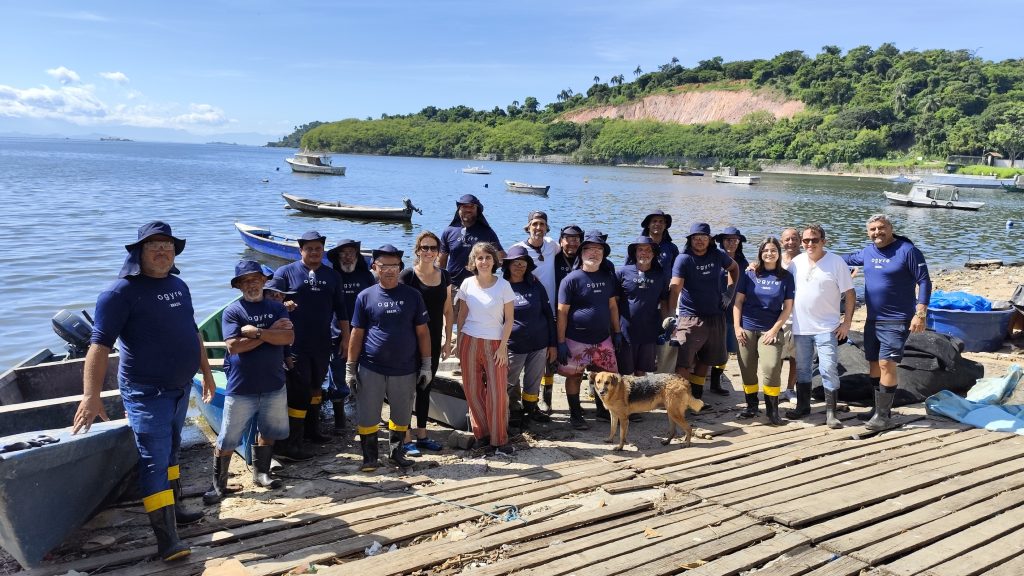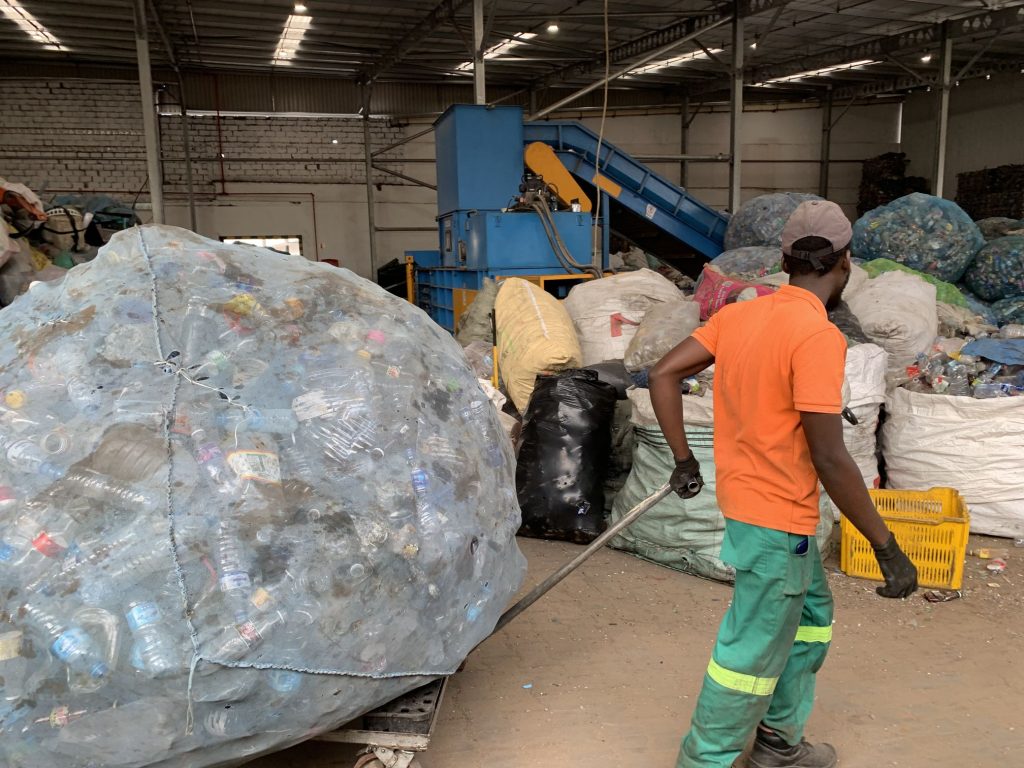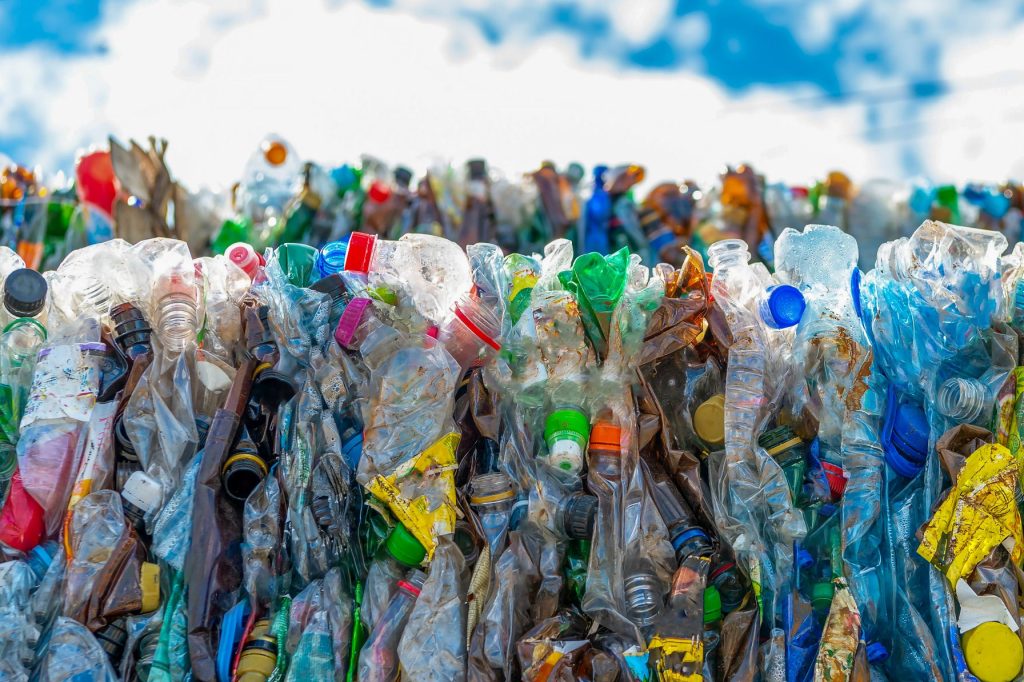BVRio’s ‘Fishing for Litter’ programme, developed in partnership with artisanal fishing communities in Guanabara Bay, recently welcomed Larissa Godoy, the national coordinator of the TerraMar Project, an initiative led by Brazil’s Ministry of the Environment and Climate Change (MMA).
Coordinated by the Department of Oceans and Coastal Management at the MMA, in partnership with GIZ (the German development agency), the TerraMar Project aims to promote integrated management of coastal and marine ecosystems, enhancing biodiversity conservation, addressing climate change, and supporting a sustainable blue economy.
The visit to BVRio’s initiative highlighted potential synergies with actions that combine environmental conservation and social inclusion. Larissa was joined by BVRio Director Pedro Moura Costa, to follow waste collection activities in a mangrove area with the fishers. During the visit, she emphasised the crucial role of these communities in developing effective responses to plastic pollution and mangrove restoration:
“Initiatives such as ‘Fishing for Litter’ highlight the importance of involving fishers in tackling the tragedy of plastic pollution along the coast and in the ocean, where unfortunately this waste accumulates one way or another. Fishers who are directly affected are also essential to identifying solutions that involve preventing, reducing, and eliminating plastic waste at sea and in coastal zones.”
Since 2021, the programme has involved fishers in removing solid waste from marine and coastal environments, while also contributing to income generation and strengthening the traditional ways of life of these vulnerable communities.
Larissa also pointed to the environmental and economic impacts caused by abandoned fishing gear and the need to strengthen local engagement in long-term strategies: “Lost, abandoned, or discarded fishing gear causes environmental and economic harm, such as ghost fishing and habitat loss, and is a source of microplastics.”
By connecting local initiatives to wider public policies, the ‘Fishing for Litter’ programme helps to build structural solutions to the socio-environmental challenges facing Brazil’s coastal regions.



